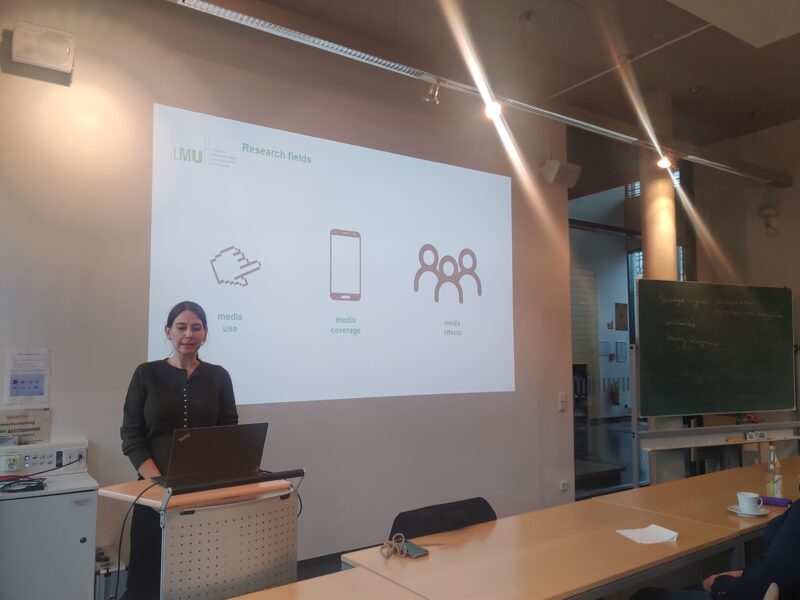
Review: Green hour: “Climate Change on Television: Talking to the Converted?” (PROF. DR. Imke Hoppe)
This semester’s Green Hour lunch bag series began with a leap into a highly topical issue: how can the fatigue and boredom that after years of climate change reporting befalls even the most concerned and engaged audiences, be overcome?
In her stimulating impulse lecture on “Climate Change on Television. Talking to the Converted?” Prof. Dr. Imke Hoppe emphasized the diversity of audiences—from the “alarmed” to the “dismissive.” Interestingly, even the latter group is increasingly frustrated about the negativity of the public discourse, especially in news formats, and tired of politicians dominating the conversation. Still, television remains the most popular source of information about climate change in Germany. Importantly, however, topics related to social issues, war, and the economy, have overhauled climate change as a number one focus of media reporting and fictional formats. Yet despite recognizing the urgency of the issue, German viewers now list climate change way after what they consider more pressing issues such as energy, finance, war, and the economy.
The semester’s first Green Hour drew a large audience, which underscores the importance of the topic in our interdisciplinary research environment. The discussion was, as always, lively and many-voiced, and continued until way after the event. Participants agreed that in the current moment, more resonant formats beyond news are urgently needed—from fictional ones to more integrative reporting and documentaries that highlight the complex ways climate change impacts the many other issues humans and more-than-humans are dealing with. The discussion ended with a discussion about the marginalization of Germany’s many immigrant communities in both public and private broadcasting and the potentials that lie in reaching out to these audiences.
